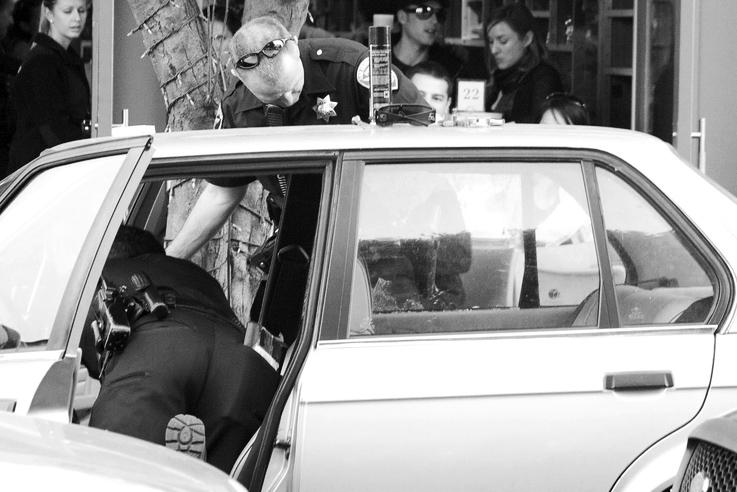Here’s a bright idea for combating crime: how about we allow law enforcement and prosecutors to seize cars, boats, houses, cash and other property from individuals without convicting, let alone charging, them with any crime. We’ll place the burden of proof on the private citizens whose assets were seized and require them to appear before court to try to win back their property; then, we’ll allow law enforcement and prosecutors to sell the property and keep the profits for their departments.
What could possibly go wrong?
Hopefully, you’ve sensed my sarcasm by now. This practice, known as civil asset forfeiture, has spawned rampant corruption in cash-strapped municipalities throughout the entire nation by allowing police departments and prosecutorial offices to commit legally sanctioned highway robbery.
One of the worst cases for civil asset forfeiture is that of the Sourovelis family in Philadelphia, a city that is notorious for this affront to our civil liberties. In May, authorities busted the family’s son for selling $40 of marijuana outside of the house; however, the police seized the family’s house in civil forfeiture proceedings.
Philadelphia’s forfeiture racket is unparalleled in terms of its scope. According to asset forfeiture reports from the state Attorney General’s Office spanning from 2002 through 2012, the Philadelphia District Attorney’s Office has seized approximately $6 million in cash and property each year. During this time period, the Philadelphia District Attorney’s Office collected more than $64 million in revenue by seizing over 1,000 homes, 3,200 vehicles and more than $44 million in cash from private citizens. Close to 40 percent of these funds were then used to pay the salaries of law enforcement and prosecutors.
Frederic Bastiat, a French political philosopher, asserted that the purpose of government is to secure for individuals their rights to life, liberty and property. However, he noted that governmental officials all too often exploit the mechanisms of government, especially the ability to coerce the citizenry for the purposes of “legal plunder.” Nowhere is this more apparent than in the case of civil asset forfeiture.
Although this legal practice has been used to some degree ever since our nation’s founding, it remained obscure and seldom used for the vast majority of American history. However, that all changed when Congress expanded forfeiture powers with the Comprehensive Crime Control Act, allowing federal law enforcement to seize money and goods from organized-crime bosses and drug lords during the “War on Drugs” in the 1980s. Smelling opportunity, states immediately began to craft their own civil asset forfeiture laws, which eventually ventured further and further away from being used to confiscate the property of high-level drug suppliers towards harassing low-level drug users.
It amounts to seizing property from someone on suspicion that the property was used, or will be used, as an instrument to commit a crime in the future. Instead of charging the individual with a crime, waiting for a conviction and then seizing the property, officers can simply seize the property under civil law and require that the owner prove that the property was not used for the commission of a crime. The standard used to determine the legality of the civil forfeiture is “preponderance of the evidence” (a probability that translates to “more likely than not,” or roughly 51 percent).
Since its inception, the use of civil asset forfeiture laws to steal money from the public has spun more and more out of control. According to the New Yorker, revenue gained from forfeiture cases skyrocketed from $27 million dollars in 1985 to $506 million in 1993 at the Justice Department. Last year was a record: the proceeds gained from forfeiture amounted to a staggering $4.2 billion.
The Washington Post issued a report last month using data provided by the Justice Department; it detailed that since 9/11, federal, state and local authorities have seized over $2.5 billion in cash without a warrant through this program. Only one out of every six seizures was challenged in court by the owner. Out of those, 40 percent of the appeals dragged on for over a year, demonstrating why many citizens would simply rather take the financial hit than battle it out in court.
Thankfully, Sen. Rand Paul (R-Ky.) proposed a bill that would raise the standard of proof required for the government to seize property in civil forfeiture proceedings. Instead of the low standard of “preponderance of the evidence,” the bill would raise the legal hurdle to “clear and convincing evidence.” Additionally, it would divert the seized funds from the Department of Justice to the General Fund of the Treasury to eliminate the profit incentive that often corrupts local law enforcement departments.
The practice of civil asset forfeiture affronts our universal sense of justice. Eliminating it once and for all needs to be a national priority, and remaining complicit any longer while law enforcement fills their coffers by committing highway robbery will only allow this blatant legal plunder to carry on.




